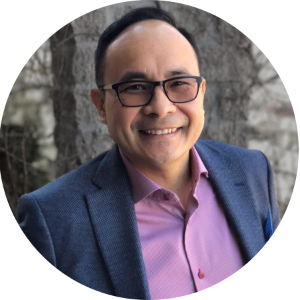Beyond the Buzzword - Evolutionary Thinking on Founder's Mode
Mar 03, 2025
Aloha Limitless Leaders!
Have you been hearing the buzz about "Founder's Mode" lately? As we navigated the final stretch of 2024, this concept has captured leadership conversations following Airbnb's Brian Chesky's compelling speech on leadership presence. The essence of his message challenges our assumptions - Founder's Mode isn't about detachment but profound presence. This leadership approach enables deep immersion in organizational details, connecting the limitless leaders with every layer of their enterprise and developing an intimate understanding of products and services that drive success.
My perspective on Founder's Mode centers on this critical insight: presence-based leadership, when thoughtfully applied, creates unique advantages that distant management simply cannot replicate.
During the pandemic's darkest hours, Chesky credits Founder's Mode as his north star. By centralizing decision-making, Airbnb made swift, decisive moves that helped them reclaim their revenue streams by 2023. In our rapidly evolving world where crises multiply daily, this approach has become increasingly essential for enterprise survival and adaptation.
Drawing inspiration from Steve Jobs, Chesky places the Founder at the epicenter of product vision and design. He's careful to distinguish this approach from micromanagement, describing it instead as partnership. He boldly challenges conventional wisdom that prioritizes delegation above involvement, arguing that such orthodox thinking often undermines companies as they scale. His alternative? Leadership anchored in expertise and presence.
The core benefit is clear: By remaining deeply engaged, the Founder ensures that the original purpose and values remain the beating heart of the organization, avoiding bureaucratic bloat while keeping innovation at the forefront.
Now, Limitless Leaders, as eternal apprentices, we understand that no leadership style comes without potential shadows. Let's examine the possible pitfalls of Founder's Mode with clear eyes.
Founders typically view their enterprises as extensions of themselves—loving them as they would their own children. Any parent reading this understands the profound challenge of entrusting your child's development to someone else. This deep personal connection can make Founders particularly sensitive to criticism, allowing ego to hijack their responses. This sensitivity often manifests as reluctance to delegate—research shows 58% of Founders struggle to release control, creating bottlenecks as organizations also row.
Investors have observed that the Founder's superpower of scrappiness—so vital in early stages—can sometimes impede the development of systems and processes essential for scaling. Jeff from BrightSign shared with me how Founders often view such structures as obstacles rather than launchpads, noting: "The very tenacity that builds companies can sometimes prevent them from evolving beyond their origins."
History has also taught us the risk of burnout is very real. Without self-awareness, Founder's Mode can lead to exhaustion and diminished effectiveness over time. Danielle at Pioneera, who coaches executives through burnout recovery, quipped: "The passion that drives a Founder's deep involvement is the same passion that can consume them if not balanced with self-care and trust in their team."
This brings us to a crucial distinction I want to make. The revolutionary approach pits "Founder's Mode" against "Manager Mode" as opposing forces. But evolutionary thinking—which I believe serves us better—seeks to integrate the strengths of both approaches. The question isn't which mode is superior, but rather: which elements of each approach serve your specific organizational context and growth stage?
I'm particularly drawn to concepts that have weathered the test of time rather than passing trends. This led me to examine the oldest enterprise in the world Kongō Gumi. It thrived for over 1,400 years—perhaps history's most compelling case study in organizational longevity. Did they employ Founder's Mode to ensure their remarkable journey? Indeed, our research reveals that Founder's Mode principles were woven throughout their impressive history. The traits we uncovered—hands-on leadership, adaptability, innovation, crisis management—mirror those championed in today's tech ecosystem.
Yet one trait deserves special attention: visionary succession planning. While Founder's Mode fueled Kongō Gumi's 1,400-year journey, it transcended the original Founders. This reveals a profound truth: Founder's Mode isn't activated solely by the Founder but through their ability to initiate, teach, coach, and cast the Purpose, Vision, Mission, and Values of the enterprise to successors who embrace the same principles.
Let's look at contemporary examples that illustrate different approaches. Jeff Bezos appears to have transitioned toward "Manager Mode" by building a formidable leadership team and delegating significant decision-making authority. Amazon's leadership principles serve as his proxy, ensuring his vision permeates the organization even when he's not directly involved. This transition allowed Amazon to scale into diverse markets while maintaining its customer obsession.
Conversely, Sam Walton exemplified classic Founder's Mode throughout Walmart's growth. His hands-on leadership included visiting stores weekly, engaging directly with frontline employees, and even performing unannounced store visits to ensure alignment with his vision. His famous Saturday morning meetings brought together executives and associates from all levels, creating direct connections across hierarchical boundaries. This approach helped Walmart disrupt retail by entering underserved rural markets with a model that larger competitors overlooked—a quintessential Founder's Mode victory.
As I see it, Limitless Leaders must approach widely promoted concepts with healthy skepticism, examining them through the lens of their unique organizational context. Ultimately, what matters are the results your actions generate, not adherence to any particular leadership framework. The Infinite Game of business (as popularised by Simon Sinek) involves countless variables that shift constantly with market conditions, technological advances, and human dynamics.
Our task is to distill concepts into principles that have stood the test of time and produced desired outcomes across diverse contexts. I believe each enterprise possesses a unique DNA—after all, organizations comprise human beings whose DNA fundamentally differs. As mentioned earlier, Founders view their companies as their children, and who could love and care for a child more deeply than its parent? Yet we've seen adoptive parents who demonstrate equal—sometimes greater—love and care than biological parents.
This brings us to the practical application of these insights.
If you're a Founder, how do you instill your desired traits in your teammates? How do you enable Founder's Mode throughout your organization even as you scale? Consider these actions:
- Document and regularly communicate your founding vision and values
- Create mentorship structures that allow your direct involvement with emerging leaders
- Design decision-making frameworks that extend your influence without requiring your presence for every choice
If you're not a Founder, how do you embody the traits that define exceptional Founders while honoring the vision that preceded you? My experience suggests: - Immerse yourself in the organization's history and founding principles
- Seek direct exposure to customers and frontline operations
- Cultivate the same curiosity and hunger that drove the original Founder's success
For your reflection, I offer the three principles for the Limitless Leader as the foundation for continuous growth and results—whether you're a Founder or not:
- Always Be Learning — primarily by seeking and listening to diverse perspectives within and beyond your organization
- Always Be Serving — primarily by removing obstacles that impede progress and empowering others to achieve excellence
- Always Be Accountable — primarily by sharing wins broadly and shouldering losses personally, modeling the ownership mentality that defines exceptional leadership
The evolutionary approach to leadership recognizes that Founder's Mode and Manager Mode need not be mutually exclusive. The wisdom lies in knowing when presence serves better than distance, when deep involvement catalyzes progress rather than creating bottlenecks, and when to trust others to carry forward the vision you've established.
So, Limitless Leaders, what's your take on Founder's Mode? How have you balanced deep involvement with effective delegation? Where has presence served you better than distance? I'm asking, and I'll be reading/listening to your experiences with genuine curiosity.
Lead on with purpose, grace, and limitless potential.


